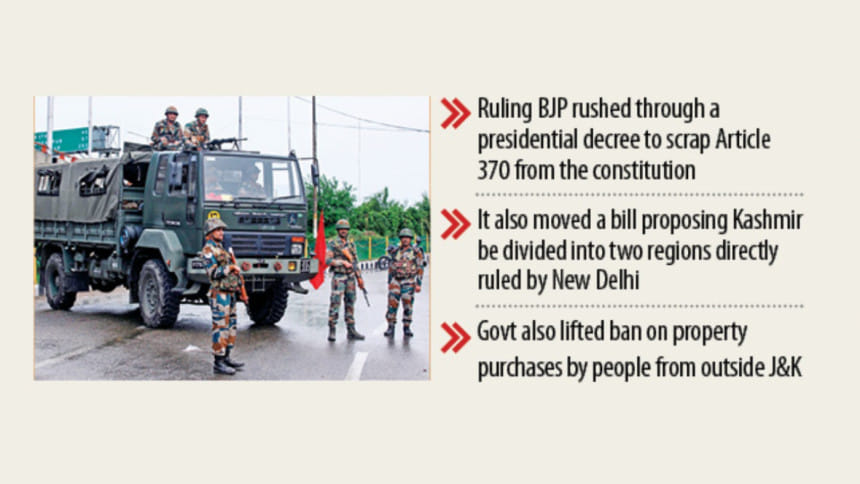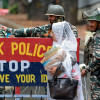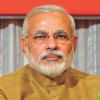India scraps special status for Kashmir

The Indian government yesterday stripped Kashmir of the special autonomy it has had for seven decades, prompting a furious response from nuclear-armed rival Pakistan and raising fears of further violence in the Muslim-majority Himalayan region.
Indian Prime Minister Narendra Modi’s Hindu-nationalist party BJP rushed through a presidential decree to scrap from the constitution the Indian-ruled part of the disputed territory’s special status.
It also moved a bill proposing the Indian-administered part of Kashmir be divided into two regions directly ruled by New Delhi.
Meanwhile, Jammu and Kashmir’s former chief ministers Mehbooba Mufti and Omar Abdullah -- who had been placed under house arrest -- were arrested yesterday, reported NDTV quoting sources.
Mufti was taken from her home in Srinagar to a nearby government guest house, it added.
Before her arrest, Mufti condemned what she described as Indian democracy’s “darkest day”. She tweeted that Delhi’s move was illegal and unconstitutional, and would make India “an occupational force” in the state.
Ahead of the government announcements, tens of thousands of extra Indian troops were deployed in the territory, and a security lockdown was imposed overnight Sunday with all telecommunications there cut.
Home Minister Amit Shah, a close ally of Modi, told parliament that the president had issued a decree abolishing Article 370 of the constitution, which gives special autonomy to the Himalayan region.
The decree said the measure came into force “at once”.
Article 370 of the Indian constitution gave special status to the state of Jammu and Kashmir.
It limited the power of the Indian parliament to impose laws in the state, apart from matters of defence, foreign affairs and communications.
Introduced decades ago, the constitutional provisions reserved government jobs and college places for Kashmir’s residents, among other limits aiming to keep people from other parts of the country from overrunning the state, reported Reuters.
The government also lifted a ban on property purchases by non-residents, opening the way for Indians to invest and settle there, just as they can elsewhere in India, although the measure is likely to provoke a backlash in the region.
The announcement follows days of uncertainty in the region that began on Friday when New Delhi ordered tourists and Hindu pilgrims to leave “immediately”.
All phones, internet services and cable networks in the restive Himalayan region of more than seven million people were cut at midnight, and only residents issued with a curfew pass were allowed on the streets.
SHARP REACTION
The announcement sparked chaotic scenes in the national parliament. The main opposition Congress party described it as a “catastrophic step”.
One lawmaker from the regional Kashmir-based Peoples Democratic Party tore up a copy of the Indian constitution before being reportedly removed from the chambers by parliamentary marshals.
Pakistan’s foreign ministry condemned the Indian government’s move as “illegal”.
“As the party to this international dispute, Pakistan will exercise all possible options to counter the illegal steps,” it said in a statement.
A senior Pakistani security source said that a meeting of the Pakistani military’s top commanders had been called for today.
Kashmir has been divided between Indian and Pakistan since their independence in 1947.
For three decades the Indian-administered part has been in the grip of an insurgency that has left tens of thousands dead.
Armed Kashmiri rebels and many residents have fought for the region’s independence or to join neighbour Pakistan.
There were already growing fears among Kashmiris that the special status would be ditched after Modi’s Bharatiya Janata Party (BJP) obtained a large parliamentary majority in recent elections.
His party had vowed to fulfil a long-held promise to scrap the laws, and many fear New Delhi wants to change the region’s demographics by allowing non-Kashmiris, mostly Hindus, to buy land locally.
The move is set to exacerbate the already bloody rebellion in Kashmir and deepen the long-running animosity with nuclear rival Pakistan which has fought two out of three wars with India over the territory.
“There will be a very strong reaction in Kashmir. It’s already in a state of unrest and this will only make it worse,” Wajahat Habibullah, a former senior bureaucrat in Jammu and Kashmir, told AFP.
MUSCULAR APPROACH
Yesterday’s move reflects Modi’s muscular approach to national security. In February, he ordered war planes into Pakistan after a militant group based there claimed responsibility for a deadly attack on a military convoy in Kashmir.
The Indian government yesterday also decided to split the state into two federal territories, one formed by Jammu and Kashmir, and the other consisting of the enclave of Ladakh, citing internal security considerations.
India’s interior ministry ordered all states to put security forces on “maximum alert” to maintain public order and quash the spread of any rumours.
Ram Madhav, general secretary of Modi’s BJP, hailed the government’s actions as ushering in a “glorious day”. In Modi’s western home state of Gujarat, people shouted slogans of support on the streets.
In Pakistani-controlled areas of the region, however, there was anger at India, with protests extending to the capital, Islamabad and the southern commercial centre of Karachi.
In Muzaffarabad, 45 km from the two countries’ contested border, dozens of protesters held black flags and burnt car tyres, chanting “Down with India”.
WHAT IS ARTICLE 370?
Article 370 gave Jammu and Kashmir state a special position in India’s union. The provision gave Kashmir’s assembly the power to vet national laws passed by New Delhi. It also gave the state a separate constitution and a flag. Under the provision, Indians outside the state were blocked from permanently settling, buying land, holding local government jobs and securing education scholarships. Under the changed status, the region will now be governed by the laws applicable to other Indian citizens.

 For all latest news, follow The Daily Star's Google News channel.
For all latest news, follow The Daily Star's Google News channel. 








Comments